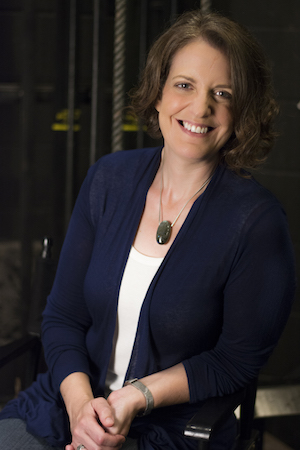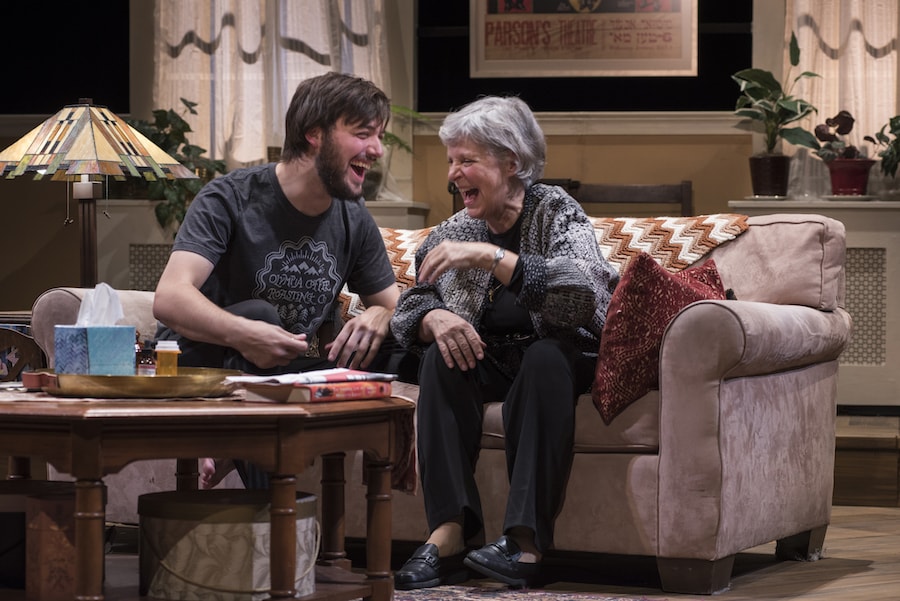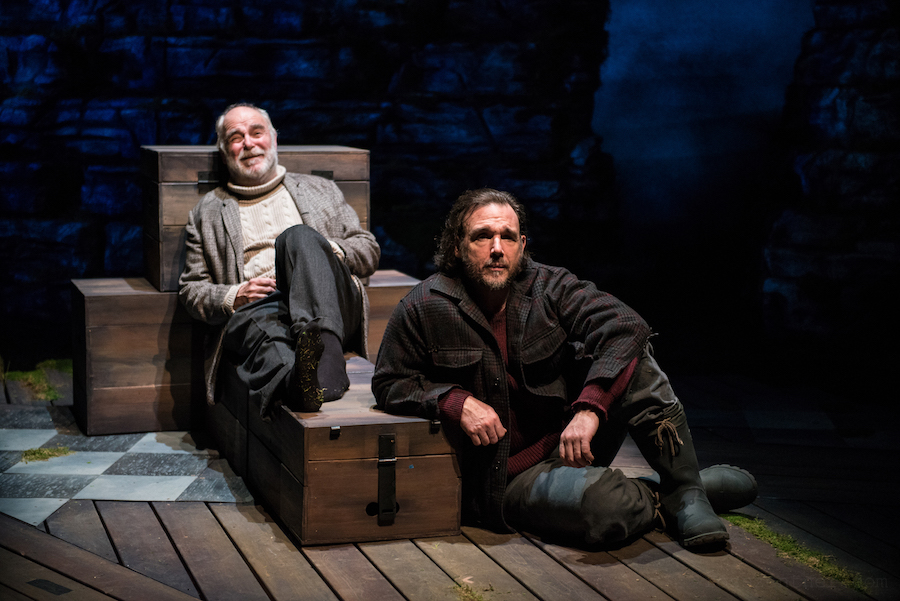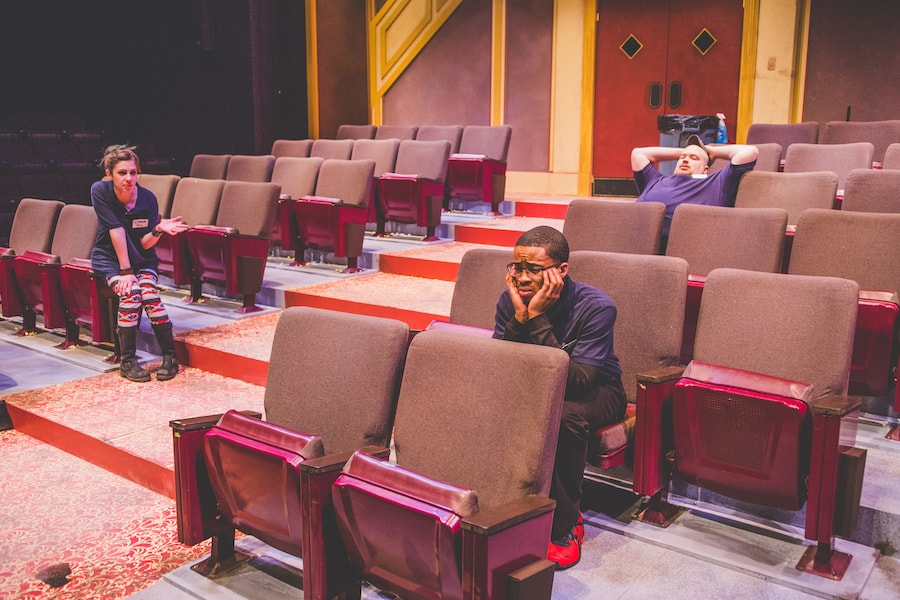MADISON, WISC.: The Wisconsin state capital sits on an isthmus between two bodies of water, Lake Mendota and Lake Monona. While the state is known as the country’s largest producer of dairy products, it’s also known as a hotbed of a different kind of culture, and Madison is a case in point. Dozens of museums surround the State Capitol building along Madison’s Museum Mile, and live music venues, dance companies, and comedy clubs are scattered throughout the city. Among the selection of live entertainment is Forward Theater Company (FTC), the resident theatre company that calls the Overture Center for the Arts its home. American Theatre caught up with producing artistic director Jennifer Uphoff Gray via email to learn more about producing theatre in Madtown.

Who founded Forward Theater, when, and why?
FTC was founded in March of 2009. Madison Repertory Theatre (the only AEA company in our city) had just closed in the middle of its 40th season, leaving many arts lovers in our community grieving or frustrated.
At the same time, the country as a whole was reacting to the worst economic crisis in decades, and government leaders were issuing “all hands on deck” calls to action, looking for creativity and entrepreneurship to help stem the flow of job losses.
It was in this context that a group of theatre professionals from across southern Wisconsin met around a kitchen table to discuss whether we might be able to somehow make a contribution. We were playwrights, designers, actors, and directors, members of Wisconsin’s artistic professional communities.
By the end of that meeting, Forward Theater Company had been born. Our three-point mission was straightforward: to create a home base for Wisconsin’s theatre professionals, to contribute to the cultural fabric of the region, and to expand the economic life of the greater Madison area.
What is your connection to the theatre?
I was a co-founder of Forward Theater and have been serving as producing artistic director since our inception. In 2018 we are bringing on a managing director for the first time and I’m incredibly excited to get to share leadership of the company with Julie Swenson (formerly managing director of Renaissance Theatreworks in Milwaukee).
How did Forward Theater get its name?
At our very first meeting, we talked at great length about how we wanted to position this new company within our community, within our state, and within the larger context of national theatre. On a local level, the word “forward” connects with the Ms. Forward statue that sits outside the State Capitol building, just a block away from the Overture Center where we perform. She is the inspiration for our graphic logo. On a state level, “forward” is Wisconsin’s motto, and connects with our state’s long progressive tradition. Nationally, “forward” relates to our belief that theatre has the power to move us all forward as human beings, and that our continual evolution as a society can be spurred by art that creates empathy and connection.
What sets your theatre apart from others in your region?
From the beginning, we have set out to cultivate a professional home for Wisconsin theatre artists; more than 90 percent of our hires live here. To do that, we work to provide a living wage to those artists, and that includes a close relationship with Actors’ Equity, IATSE, and other theatrical unions. We also strive to produce plays that our audiences would otherwise not be able to see, with high-quality productions that are fresh from Broadway or beyond, written by playwrights in the vanguard of contemporary theatre. And our outreach efforts give theatregoers the unique chance to engage with our productions through partnerships with local nonprofits and arts organizations.
Who is your audience?
Our audience is quite simply amazing. They are bold, curious, and invested in our exploration of contemporary theatre. A typical FTC three-week run draws an audience of close to 5,000 patrons, nearly two-thirds of them subscribers.
Our signature nightly talkbacks have become engaging conversations that offer us insightful perspectives on the work, and it’s not unusual for half (or more!) of the audience to stay for them. David Mamet would not approve.

Tell us about your favorite theatre institution other than your own, and why you admire it.
Many companies, both near and far, come to mind for me. I am hard-pressed to pick a favorite, but Lincoln Center Theater is surely right up there. My first dozen years as a freelance director were spent in New York City, and I was a subscriber to LCT for most of those years. Their affordable subscriptions made it possible for me to see a wide variety of plays—both new works and revivals—that exposed me to the work of world-class artists. Now that I am running a company that focuses on contemporary work, we have benefitted from the investment LCT puts into developing new plays and have produced here quite a few pieces that started there.
How do you pick the plays you put on your stage?
We are graced with a literary committee that is constantly reading plays. They meet each month to discuss and compare notes, and when they hit upon something that they feel is a good fit for Forward, they pass it on to our advisory company members, who assist me in considering the play for production. A “forward” play must be entertaining, relevant, and thought-provoking, and offer our audience opportunities to experience the world through a variety of perspectives.
What’s your annual budget, and how many artists do you employ each season?
Each season we employ approximately 100 artists and technicians. Our 2017-18 operating budget is around $850,000. Next season, when we add a production, we’ll jump to just over $1.1 million. It still surprises me how rapidly this company has grown, but we are very proud to say that we have ended every single season in the black.
What show are you working on now? Anything else in your season that you’re especially looking forward to?
We just closed I and You by Lauren Gunderson, and we began rehearsals for Exit Strategy by Ike Holter at the end of December. Later this spring we’ll finish up with Jordan Harrison’s Marjorie Prime. It sounds clichéd, but I’m fired up about every play we’re producing! Our theme this season is What’s Next?, and we chose three plays that explore that question in a compelling progression throughout the year. Each piece expands the scope from the “micro” to the “macro,” and the entire journey is what I’ve been looking forward to since we created this slate of shows. Next season will be Forward’s 10th, and we’ll be expanding our mainstage series from three productions to four. All of us are really excited to take that next step.

What’s the strangest or funniest thing you’ve ever seen (or put) on your stage?
In the spring of 2016 we produced Anne Washburn’s Mr. Burns, a post-electric play. We knew going in that this play would stretch our audiences and our artists. It definitely did, and it was a riotous and rewarding experience. I had the time of my life directing it and working with the team of actors and designers to create this post-apocalyptic world. And while there were a handful of regular audience members who found the piece went too far outside their comfort zone, it also brought in more than 500 first-time ticket buyers.
What are you doing when you’re not doing theatre?
I’m the mother of three kids (ages 11, 14 , and 16), so they take up much of my spare time, alongside the usual errands, laundry, meals, chauffeuring, etc., etc. And living in Wisconsin these days, there are plenty of political causes and efforts that draw me in as a volunteer. But when I have a spare moment you can usually find me spending it with a good book, Netflix, or the Sunday New York Times crossword puzzle.
What does theatre—not just your theatre, but the American or world theatre—look like in, say, 20 years?
Still here, still going strong. Both mainstream and boundary-pushing work will continue to thrive, as they do now. What will be different, I believe, is that many more diverse voices will be amplified in that work. That’s an evolution already in progress, and I’m glad to be able to play a small part in that as a producer.


